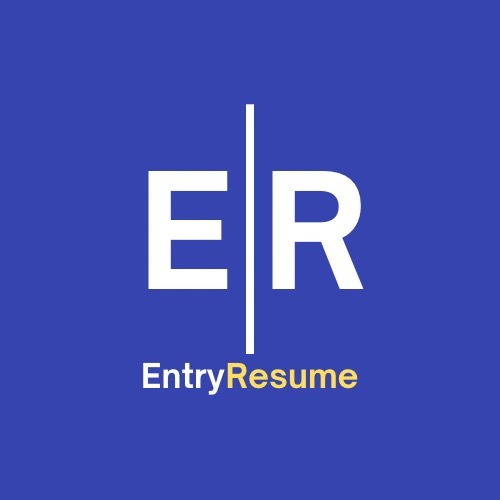Life happens, and sometimes health issues can lead to employment gaps. If you’ve taken time off due to a medical condition, explaining this gap in your resume and interviews may seem daunting. However, with the right approach, you can handle it professionally and confidently without compromising your job prospects.
Part of what inspired me to create Entry Resume LLC is my own experience with getting sick with a chronic illness. Shortly after graduating from college I got sick with an autonomic nervous system disorder called Postural Orthostatic Tachycardia Syndrome (POTS). I had my degree and great internship experience, but I wasn’t able to start my career. Instead, I was fighting to get my body to work well enough to do minor everyday tasks without fainting.
Taking a few years away from work made the job application process difficult when I was finally ready to enter the workforce. I had to figure out how to make my resume relevant with such a gap, and explain it to hiring managers before even being considered for a job. This is where a service like EntryResume.com comes in. We know how to navigate through issues like this and can help guide you through the process. Sometimes, it can be beneficial to list items in your resume. You will also definitely want to include a cover letter where you can touch on this topic. Continue reading to learn more about how to address a resume gap due to health problems, ensuring you present yourself as a strong candidate. As always, we are more than happy to help you with creating an ATS-friendly resume and cover letter tailored to the position you want.
Be Honest, But Keep It Brief
Employers don’t need every detail about your medical history. If a potential employer asks about a gap due to health reasons, provide a short, professional response. You can say something like:
“I had a health issue that required me to take time off, but I’m fully recovered and ready to return to work.”
This reassures the employer that your situation has been resolved and you are prepared for the role. Avoid oversharing personal medical details, as this can shift the focus away from your qualifications.
Address the Gap on Your Resume Strategically
If your employment gap was significant (several months or years), you may want to address it directly in your resume. Here are a few ways to do so:
- Use a functional resume format: Instead of a traditional chronological resume, a functional resume highlights skills and accomplishments rather than work history. This minimizes attention to employment gaps.
- Include a short explanation in your work history: You can list the gap as a time of personal development, such as:
- “Medical Leave – Focused on recovery and professional development”
- “Personal Leave – Dedicated to health and skills enhancement”
- Highlight any relevant activities during the gap: If you took online courses, did freelance work, volunteered, or engaged in professional development during your recovery, include it to show continuous growth.
Typically, a cover letter is the best place to address medical issues, but sometimes, it can be beneficial to touch on it on your resume as well. If you struggle with your health and are still able to do something to enhance your professional growth, this can help with the gap by adding something that you have done during this time. For example, I took classes at a local university with the assistance of Disability Services so that I could have the necessary accommodations I needed to thrive. This allowed me to continue to learn and hone in on new skills, while prioritizing my own health and recovery.
How to Discuss Your Resume Gap in an Interview
During an interview, if asked about your employment gap, stay positive and confident. Here are a few tips to navigate the conversation:
- Acknowledge the gap briefly – Say that you had a health issue that required time off but that this is no longer an obstacle.
- Emphasize your readiness to work – Focus on how you are now fully capable of performing job duties.
- Highlight skills you maintained or gained – If you took courses, did remote work, or engaged in any skill-building activities, mention them.
- Redirect the conversation to your strengths – End with a transition like, “I’m excited about this opportunity because my experience in [industry/role] makes me a great fit for your team.”
Freelancing is always a great way to work a flexible schedule that may be doable when you are feeling well. It will all depend on your individual needs and abilities, but this is a great thing to consider while taking a break from the workforce.
What If the Health Condition Is Still an Issue?
If your condition still affects your ability to work, consider discussing reasonable accommodations with the employer. The Americans with Disabilities Act (ADA) protects employees from discrimination based on medical conditions, and many companies are open to making adjustments to help you succeed.
You can also focus on remote or flexible work opportunities if your health situation requires it. Many employers are now more accommodating of flexible schedules, especially with the rise of remote work.
Final Thoughts
A gap in your resume due to health problems doesn’t have to be a dealbreaker. By keeping your explanation brief, highlighting what you’ve learned during your time off, and confidently demonstrating your readiness to work, you can navigate this challenge successfully.
At EntryResume.com, we provide expert resume writing tips, job search strategies, and career advice to help you land your next role with confidence. If you need help crafting the perfect resume, check out our professional resume services today! We can also help tailor a cover letter to explain anything additional that you were unable to put in your resume. Don’t be intimidated – life happens, and people are understanding. You just may need a little assistance to get your foot in the door!

